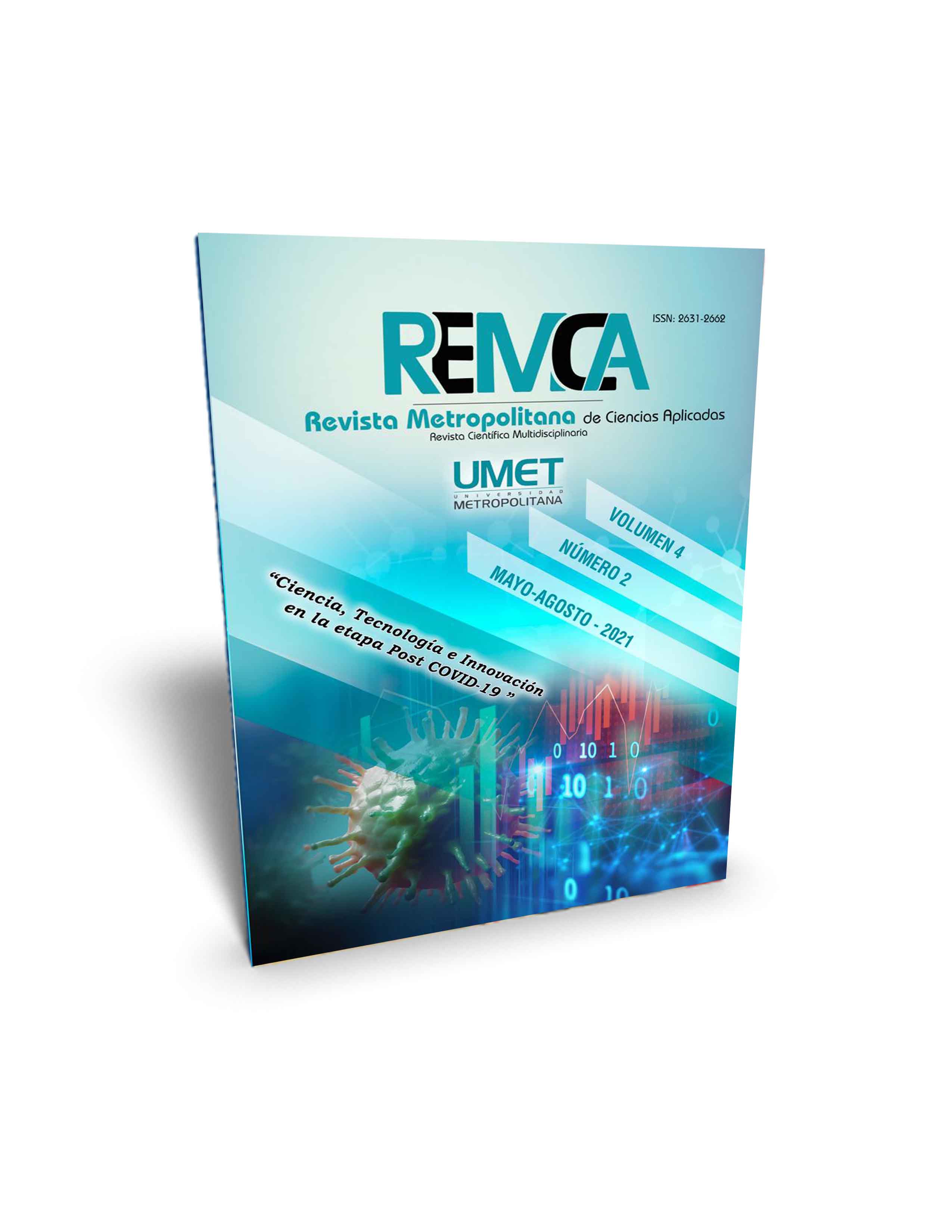El derecho de identidad de los niños y adolescentes en la declaración testamentaria en Ecuador
DOI:
https://doi.org/10.62452/w8pfsm09Palabras clave:
Constitución, declaraciones testamentarias, derecho, libre desarrollo, identidadResumen
El artículo estudia el derecho constitución al a la identidad de los niños, niñas y adolescentes en la declaración testamentaria en el Ecuador, en primer lugar respecto a la identidad personal que es considerada como un derecho plenamente reconocido por la Constitución; y el cual, según la doctrina y jurisprudencia, es un derecho que debe ser garantizado en todo momento, ya que este constituye un elemento necesario para el pleno ejercicio del derecho al libre desarrollo de la personalidad del niño, niña y adolescente. Además, se plantea estudiar nuevos escenarios en cuanto al derecho de identidad que poseen los niños en la declaración testamentaria, por tal razón, se emplea el método histórico mismo que estudia las etapas del derecho de identidad y la declaración testamentaria con el único propósito de descubrir de qué manera influye la una en la otra, y el lógico, se aplica con el objetivo de obtener información, además se aplica el método inductivo-deductivo, ya que se quiere conocer de manera más general cómo se violenta el derecho a la identidad de los niños, niñas y adolescentes al no constar en las declaraciones testamentarias, y el deductivo porque se pretende obtener conclusiones prácticas y acertadas sobre el tema.
Descargas
Referencias
Álvarez González, R. M. (2015). Derecho a la identidad. Boletín Mexicano de Derecho Comparado, 139.
Álvarez, L. (2016). Clases de declaraciones testamentarias. Revista de Derecho Sucesorio.
Benítez, M. F. (2015). La protección de los derechos de los niños. Revista Humanium.
Contreras, S., & Paredes, O. (2017). Asiganción es testamentarias o patrimoniales. Revista de Derecho Sucesorio.
Fernández, G. (2018). La identidad como derecho. Revista del niño, niña y adolescente.
García, A. (2018). La declaración testamentaria. Revista de derecho de la Uiniversidad Santiago de Guayaquil.
Gavilánez, S. (2017). Declaraciones Testamentaarias. RUTL.
Larrea, J. (2018). Caracteristicas de las dispoción es testamentarias. Revista de derecho UPT.
López, M. (2017). El derecho a la identidad. Revista de Ciencia Jurídica.
Organización de las Nación es Unidas. (1966). Pacto Internación al de Derechos Civiles y Políticos. https://www.ohchr.org/sp/professionalinterest/pages/ccpr.aspx
Paredes, J. (2018). Asiganción es testamentarias. Revista de Derecho UADA.
Parra, L. (2016). El derecho a la identidad personal. Revista de derecho UNIT.
Parraguez, L. (2015). Asignaciones testamentarias. Revista de derecho sucesorio.
Peréz, L. (2016). Acto Juridico testamentario. Análisis del Derecho Testamentario.
Pintado, G. (2018). Disposiciones Testamentarias. Revista PUC.
Rodríguez, F. (2015). La sucesion testamentaria en la legislación ecuatoriana. Revista de Derecho Sucesorio Ecuador.
Sánchez, O. (2016). Qué es el derecho? Revista de Derecho.
Urteaga, P. (2016). La vision del derecho a la identidad. PAUCE.
Zambrano, J. L. (2015). La identidad como derecho para las personas. Revista de derecho UNAP.
Descargas
Publicado
Número
Sección
Licencia
Derechos de autor 2021 Alfredo Fabian Carrillo (Autor/a)

Esta obra está bajo una licencia internacional Creative Commons Atribución-NoComercial-CompartirIgual 4.0.
Los autores que publican en la Revista Metropolitana de Ciencias Aplicadas (REMCA), están de acuerdo con los siguientes términos:
1. Derechos de Autor
Los autores conservan los derechos de autor sobre sus trabajos sin restricciones. Los autores otorgan a la revista el derecho de primera publicación. Para ello, ceden a la revista, de forma no exclusiva, los derechos de explotación (reproducción, distribución, comunicación pública y transformación). Los autores pueden establecer otros acuerdos adicionales para la distribución no exclusiva de la versión de la obra publicada en la revista, siempre que exista un reconocimiento de su publicación inicial en esta revista.
© Los autores.
2. Licencia
Los trabajos se publican en la revista bajo la licencia de Atribución-NoComercial-CompartirIgual 4.0 Internacional de Creative Commons (CC BY-NC-SA 4.0). Los términos se pueden consultar en: https://creativecommons.org/licenses/by-nc-sa/4.0/deed.es
Esta licencia permite:
- Compartir: copiar y redistribuir el material en cualquier medio o formato.
- Adaptar: remezclar, transformar y crear a partir del material.
Bajo los siguientes términos:
- Atribución: ha de reconocer la autoría de manera apropiada, proporcionar un enlace a la licencia e indicar si se ha hecho algún cambio. Puede hacerlo de cualquier manera razonable, pero no de forma tal que sugiera que el licenciador le da soporte o patrocina el uso que se hace.
- NoComercial: no puede utilizar el material para finalidades comerciales.
- CompartirIgual: si remezcla, transforma o crea a partir del material, debe difundir su creación con la misma licencia que la obra original.
No hay restricciones adicionales. No puede aplicar términos legales ni medidas tecnológicas que restrinjan legalmente a otros hacer cualquier cosa que la licencia permita.




